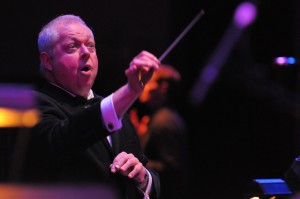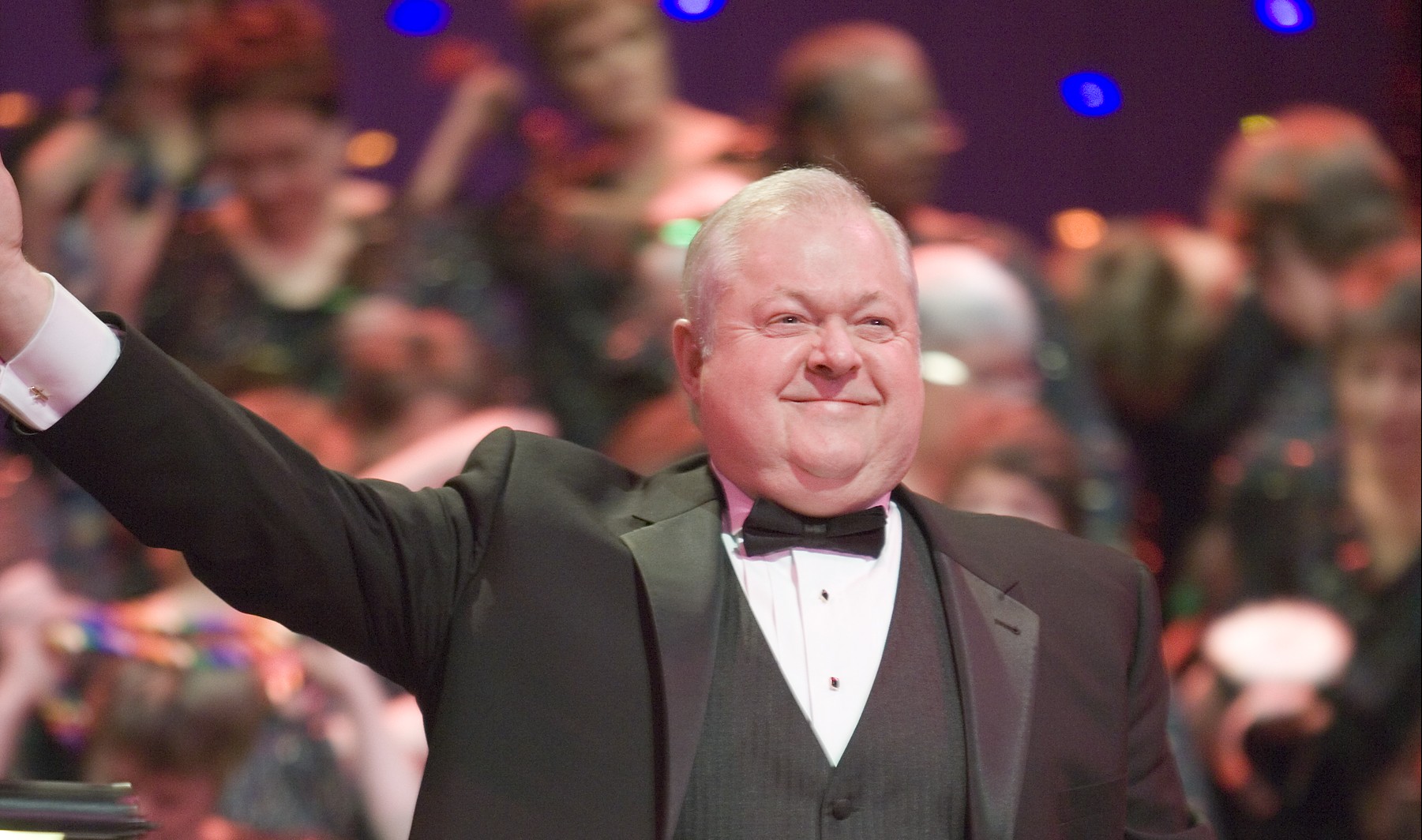I first saw Dennis Coleman conduct the Seattle Men’s Chorus in 1992 at their annual Christmas Holiday show. When the curtain went up, we were facing 200 men in tuxedos standing in orderly rows. The audience responded with applause. After waiting a beat, Dennis raised his baton and the music started. My wife and I reveled in their singing of sacred hymns. We laughed at the skits featuring drag queens and men in outlandish costumes. We felt the joy of the season and we saw LGBT (Lesbian, Gay Bisexual and Transgender) people as more than a minority. We saw them as dignified artists teaching us the holiday message of universal love.
For most of the show, all we could see of Dennis was his back. But, midway through Act 1, he turned to face the audience. He addressed LGBT youth, saying, “We love you just the way you are.” I wondered if I could be loved just the way I was, a married and closeted gay man.
23 years later, as a singer in the Seattle Men’s Chorus, I have witnessed countless miracles as a result of Dennis’s artistry: numerous LGBT journeys, including mine, to self-love; parents seeing their LGBT children in a positive light for the first time; singers receiving support from their chorus family during crises.
When he announced that he would retire after the 2015-2016 season, I remembered asking him a few years before if he ever got tired of the programming, rehearsals, and performances, and he, with a surprised look answered a simple, “No.” He was a role model for me of a man who had found his calling and was energized by it.
Dennis had grown up in Klamath Falls, Oregon, a town of Christmas parades and yearly high school performances of the Messiah. He had attended seminary and graduate music studies in Seattle. At the time of the initiation of the GALA Chorus movement in the late 1970’s, he was directing a church choir in a suburb of Seattle.
By 1981, he was wondering about his own sexuality and confided in a friend in the church. The friend told the pastor. The pastor fired him on a Thursday.
By Saturday, the newly formed Seattle Men’s Chorus hired him.
Dennis’s ministry that began in his church more than 30 years ago never stopped. “When AIDS hit, a lot of our music had to do with community and caring for one another. The chorus was our church. It was one of the few places we could go to gather together, cry and celebrate.”
After the trauma of the AIDS crisis, the next era of choral programming addressed civil rights. “We used music in support of gay liberation in the way the African Americans had used music in their fight for social justice” he says. “We’re just another in a line of people who used music as a means to make social change.”
 In 2012, the Seattle Men’s Chorus celebrated the passage of marriage equality with the wedding of two of its members on stage during the Holiday Concert. The packed house gave a standing ovation for the new, legal gay marriage that just a few years before seemed an impossible civil rights victory. For Dennis Coleman, it was the beginning of thoughts of retirement, “Everything, historically, socially, in our nation, the city, my age, my energy: everything was pointing to a new beginning.”
In 2012, the Seattle Men’s Chorus celebrated the passage of marriage equality with the wedding of two of its members on stage during the Holiday Concert. The packed house gave a standing ovation for the new, legal gay marriage that just a few years before seemed an impossible civil rights victory. For Dennis Coleman, it was the beginning of thoughts of retirement, “Everything, historically, socially, in our nation, the city, my age, my energy: everything was pointing to a new beginning.”
In his last Holiday Concert Series with the Seattle Men’s Chorus in December of 2015, Dennis turned to the power of music to face the uncertainties of the future: for the choruses, his audiences, and himself.
He played the role of the father in the classic poem, “A Visit from St. Nicholas.” He sat in a large leather armchair, center stage, dressed in a red silk nightgown and nightcap. He sang of the quiet of the house on Christmas Eve. Eight men from the elite small ensemble of the chorus joined him singing their wonder at the gifts. Two hundred men of his chorus quietly entered and lined up on the chorale risers behind him. Together they sang of how the Saint, just before leaving, turned to him with a “wink of his eye and a twist of his head” and told us that we have “nothing to dread.”
- Dennis Coleman: a GALA Institution Retires - February 2, 2016




